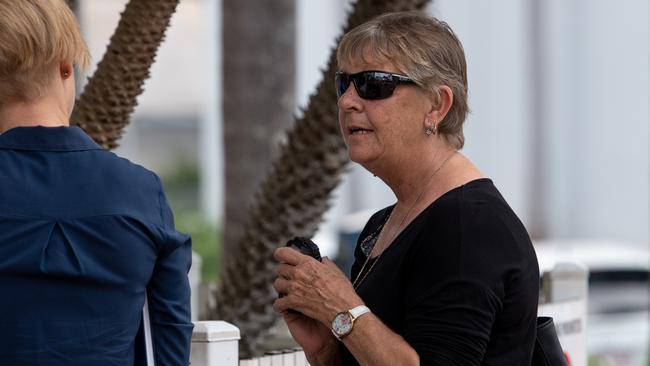NT Coroner details chronic failures at ‘state-of-the-art’ prison
The NT’s largest jail has been so riddled with problems that authorities failed to spot a new drug sweeping the facility, a court has heard.

The Northern Territory’s largest and newest jail has been so riddled with problems that authorities failed to spot a new drug sweeping the facility or realise that prisoners were using it to self-medicate to “within an inch of their lives”, a court has heard.
Coroner Greg Cavanagh on Wednesday signalled he expected to make the unprecedented finding that prison bosses did not give adequate “care, supervision and treatment” to Christopher Malyschko, a “lifer” who died after abusing the drug Kronic.
The legally mandated standard follows the High Court’s recognition of authorities’ “special duty” to inmates, who are inherently vulnerable because of their incarcerated position.
An adverse finding of that type would be the first Mr Cavanagh has made in his more than 20 years in the job and hugely embarrassing to the Labor government.
Labor commissioned the notionally state-of-the-art $1.8bn Darwin Correctional Centre, which opened in 2014 and was meant to resolve longstanding issues with overcrowding and inadequate rehabilitation systems in a jurisdiction known for its high incarceration rates.
But two years later, a scathing internal review found that the jail suffered from critical design flaws, was not fit to house the NT’s numerous Indigenous inmates and had structural and security issues that contributed to “demeaning and humiliating” conditions.
Prisoners endure the tropical heat in concrete cells without airconditioning or ceiling fans, due to cost-savings and fears about “hanging points”.
This week’s inquest heard that attempts to develop safe ceiling attachments were not adequately pursued.
In his closing submissions, counsel assisting Kelvin Currie said a range of issues persisted, emphasising that a vaunted prisoner learning system “never worked, and there seems to have been little to no motivation to get it working or replaced”.
“The evidence is the lack of activities and entertainment lead to boredom, and many of the prisoners … turned to drugs to escape that boredom,” he said.
“Dogs were ineffective, and urinalysis did not disclose intoxication. Rather than driving the prison authorities to better ways of stopping synthetic cannabis from entering the prison, they seemed to take comfort from their lack of ability to detect the drug.”
Prisoner Shane Thomas told the court the absence of rehabilitation opportunities made “good men bad and bad men worse”, which Mr Currie agreed was “difficult to dispute”.
In a letter handed to the Coroner, Mr Thomas wrote that those who would not help were “as guilty of killing as I was … (only) I’m making a conscious decision to change”.
He detailed six inmates he claimed had died or taken their own lives in circumstances related to a critical lack of opportunities to better themselves.
A lawyer for NT Correctional Services conceded the agency did not recognise the prevalence of Kronic in Darwin’s jail, nor the threat it posed to prisoners.
Mr Cavanagh will deliver his findings at a later date.



